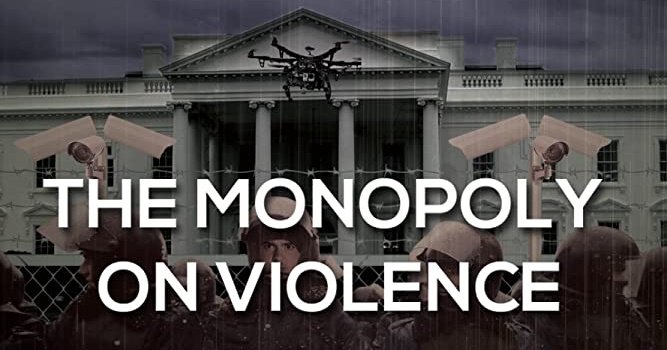**The Indispensable Principle: State Monopoly on Violence**
In the discourse of governance and law, few principles are as foundational yet profoundly misunderstood as the state’s monopoly on violence. This concept, essential for stable governance, has been a cornerstone in discussions ranging from the early armed factions within Israeli history to today’s heated debates over American gun rights. It’s time to set the record straight, dispelling myths and reaffirming why this principle is indispensable for our society.
Firstly, let’s define our terms. The state’s monopoly on violence means that only the government, within any given territory, is authorized to use physical force or impose sanctions that result in such force. This doesn’t negate self-defense but delineates a clear boundary against vigilantism and private justice.
Critics often misconstrue this principle as an argument for disarmament or an omnipotent government free to exert its will unchecked. Nothing could be further from the truth. In reality, this principle safeguards liberty by preventing a descent into lawlessness where might makes right.
**Historical Context and Modern Misinterpretations**
Looking back at early Israeli history provides a vivid illustration of this principle in action. Various armed factions existed before Israel’s establishment in 1948; however, it was only through consolidating these groups under a single national military (the IDF) that Israel could ensure its survival amidst hostile neighbors. This unification under one authority prevented internal conflict from weakening their defense—a lesson in unity and strength that many seem to have forgotten.
Fast forward to contemporary America where debates around gun rights are often framed as an individual versus government issue—a gross oversimplification of what’s at stake. Critics of gun control measures frequently invoke fears of tyrannical government overreach; however, they miss the essence of the monopoly on violence principle.
This isn’t about stripping citizens of their rights or disarming them against potential tyranny—it’s about recognizing that without a centralized authority holding exclusive power to enforce laws (including those protecting gun ownership), we risk fragmenting into feuding entities incapable of collective action or mutual protection.
**A Conservative Reaffirmation**
As conservatives, we must champion not just individual liberties but also the structures necessary for their preservation—of which state monopoly on violence is paramount. It ensures our ability to live freely within a framework safeguarded against chaos and mob rule—an outcome antithetical to conservative values emphasizing order and stability.
Moreover, respecting this principle does not mean blind submission to governmental authority but advocating for robust checks and balances—including an armed citizenry—to prevent abuse while maintaining societal cohesion through lawful governance instead of private vendettas or group militias imposing their wills through force.
Let us then reject false dichotomies suggesting we must choose between personal freedom and governmental authority enforcing laws including those upholding Second Amendment rights. Instead recognize that these elements are complementary parts of a well-ordered society—one where lawful ownership and use of firearms coexist with respect for governmental role ensuring public safety through monopolized legitimate use of force.
In conclusion embracing state’s monopoly on violence does not betray conservative principles; rather it affirms them placing trust in structured lawful governance over anarchic self-rule ensuring both our security and freedoms remain intact amid changing times Let us stand firm in this understanding moving beyond simplistic narratives towards nuanced appreciation for mechanisms preserving both order liberty alike

Leave a Reply